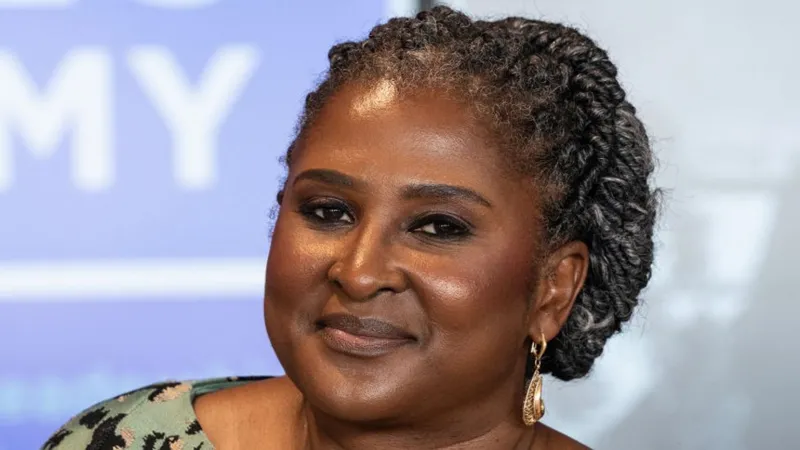Namibia’s former First Lady Monica Geingos has released a video message warning people that fraudsters are using her name and likeness to target unsuspecting citizens.
Manipulated clips circulating for some time on social media appear to show her asking people to invest in a foreign exchange (forex) scheme.
There have been many victims, including one woman who was swindled out of her retirement savings, a spokesperson for Mrs Geingos told the BBC.
The former first lady’s team have been raising the issue for almost two years, but this is the first time Mrs Geingos has made an appeal in person as the volume of fake messages has “gotten worse over the past two months”.
Mrs Geingos’ husband, Hage Geingob, was Namibia’s president from 2015 until he died in office last year.
In Thursday’s video message, the lawyer and businesswoman said she was asked to make a public appeal in person as the problem had become “ubiquitous… across social media platforms”.
There are a large number of accounts on TikTok, Instagram and X that look at first as if they belong to her – using her profile image and a handle that is very similar to her name.
People are also being contacted directly.
“Recently, someone received a video call purportedly of me convincing them to invest in some kind of weird forex scheme,” Mrs Geingos said.
“I’m not a forex person, I’m not on any social media platform asking for any money or giving any loans out or whatever you’re being told.”
She urged people not to “communicate with these fake accounts” but to report them.
The TikTok clips have used genuine footage of Mrs Geingos speaking dubbed with a voice that sounds like hers. The bank account details and phone numbers provided are all Namibian.

Mavis Elias, the former first lady’s executive assistant, said that “the most susceptible to this type of activity are those that are driven by what they see”.
She said that her office had been inundated with messages from people who had been defrauded – large amounts have been involved in some cases.
“At this juncture, it’s just a concern [over] the fact that it’s gotten worse over the past few months.
“That is distressing because it means that the more accounts are being made and the more people are becoming susceptible to it, the more people lose their hard-earned money,” Ms Elias said.
These types of scams have become a “widespread threat in Africa and… internationally”, according to Craig Pedersen, a cyber-security expert at South African company TCGForensics.
He told the BBC that while several reports suggested the scams were being run from South Africa, they now appear to be “globally spread”.
Mrs Geingos is not the only high-profile person whose image and voice has been manipulated.
In South Africa, well-known figures such as wealthy businessmen Johann Rupert and Patrice Motsepe as well as President Cyril Ramaphosa have been caught up in similar schemes to trick people out of their money.
“Scammers frequently use celebrities in their scams to lull their victims into a false sense of confidence and to encourage the victim not to ask too many questions,” Mr Pedersen said.
Dr Thembekile Olivia Mayayise, an expert in this field at South Africa’s Wits University, echoed this, saying she had come across numerous videos online using a celebrity’s likeness.
People are urged to be “more cautious with investments” and scrutinise any suspicious communication they receive – especially from well-known figures.
“Ultimately the consumer needs to become more distrusting of celebrity endorsements – particularly with regards to investments,” Mr Pedersen said.














